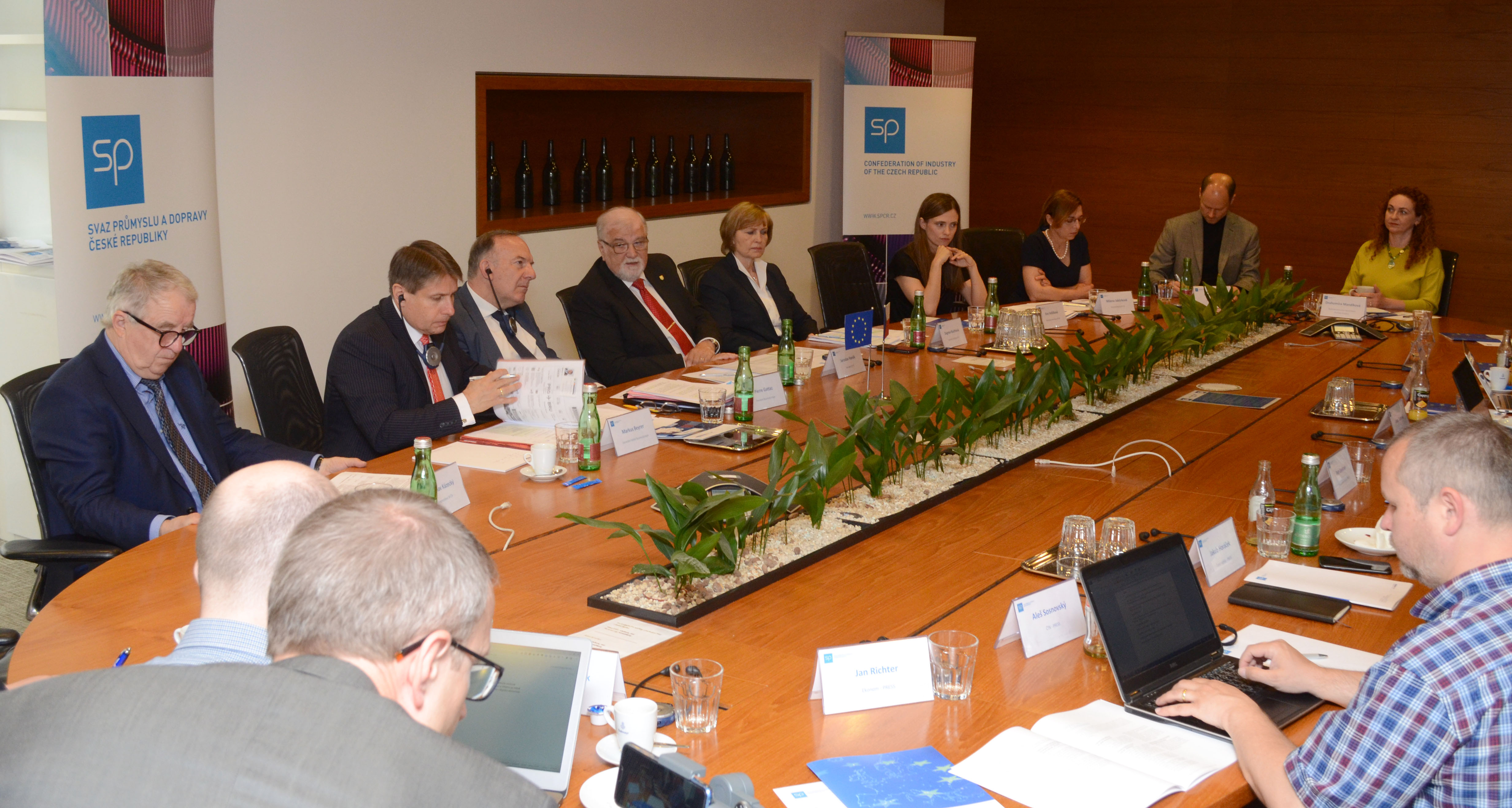Priorities for the success of the Czech industry in the EU
Confederation of Industry has prepared a list of elementary priorities and requirements key to be fulfilled at the European level in order the Czech economy and businesses to flourish. One month before the European election, we appeal the EP candidates and future EP members not to forget the interests of the Czech Republic, its citizens and business during their work. The nine areas where the Czech industry expects good quality legislation or EU support are covering wide range from energetics up to customer protection. The Confederation has also identified so-called “Czech seven key points” for the Czech industry to be economically successful in the EU. Thanks to the Confederation of European Businesses (BusinessEurope) membership, the Confederation of Industry is fighting for the quality business environment not only in the Czech Republic but in the EU as well.

In the upcoming years, Czech firms will have to continue to invest in to the new high-value-added products and business models, allowing them to charge higher prices for those products and services. Only in this way will they be able to meet employees' demand for faster wage growth and thus contribute to the increase of welfare in the Czech Republic.
“The European Union can significantly help the Czech industry in this transformation. The very basic precondition is to eliminate existing barriers in the EU Common Market. This includes ensuring the free movement of services, which are becoming more and more an integral part of the delivery of machinery, equipment or software, and carry higher value added. The fifth freedom as we call the free flow of data, on which the modern economy is dependent, must be a matter of course,” says Jaroslav Hanák, President of the Confederation of Industry of the Czech Republic.
The regulations originating in the EU created under the participation of the Czech MEPs and representatives of the Czech government, has a significant impact on domestic business. “That is why it is necessary, when creating new rules, to consider carefully the impact those regulations will have on companies and whether the new regulation is really necessary. An example could be the energetics, which has been given a completely new set of rules in recent years. The same story is the car industry, which is facing a huge technological change that requires investments due to European climate targets,” says Dagmar Kuchtová, General Director of the Confederation of Industry of the Czech Republic.
The Confederation of Industry has joined the campaign of the BusinessEurope, which calls for active participation of voters in the European elections this May. The entrepreneurs and managers are aware of the European Parliament importance. In the previous 2014 elections, 53 percent of them came to vote. "BusinessEurope, along with its members - national business associations from 35 countries, encourages the business community and all the citizens to go voting because these European Parliament elections are crucial for Europe's future. The Euroscepticism we see in Europe is a manifestation of many concerns. Populists who are proposing very simplified solutions that do not work in reality are abusing these concerns. The business community must make it clear: The EU is a solution for us, not a problem. Our common well-being depends on the good functioning of the EU,” explains Pierre Gattaz, President of BusinessEurope.
“CZECH SEVEN KEY POINTS”
“From the perspective of business the benefits of European integration are undeniable. However, we need to take care of ourselves, work to get the most out of the EU membership so that the EU help us to secure conditions for people and business development and be more competitive," says Radek Špicar, vice president of the Confederation of Industry of the Czech Republic.
The Confederation of Industry therefore defined those Czech seven key points for the economic success of our industry in the EU. Industry in the Czech Republic will only prosper and contribute to raising living standards if:
- The industry will have fair conditions in the EU Common Market.
- The free movement of services will work without artificially created national barriers.
- The new and administratively demanding regulations will not be burdening the Industry, instead of consistently enforcing the existing rules.
- The EU will not hamper the development of new sectors, particularly in the digital economy, through the over-regulation.
- The industry will be able to use research, development and innovation support tools effectively.
- The EU will respect the differences in historical, natural and technological conditions between the Member States.
- The industry will have a level playing field with competitors from the US, China and other non-EU countries and free access to third country markets.
The Confederation also published nine priority areas of Czech industry where the new European Parliament should pay attention. The policy paper has been sent electronically to the leaders of the candidate lists and current MEPs. After the elections, the Confederation will lead a delegation of entrepreneurs to Strasbourg, where its President Jaroslav Hanák will present above-mentioned priorities to the newly elected Czech MPs.
The Confederation of Industry of the Czech Republic has been a member of BusinessEurope since 1993. This membership is the most direct and effective way of influencing the creation of initiatives, policies and legislative and non-legislative measures of the European Commission. The Confederation of Industry has its permanent representation in Brussels.
BusinessEurope is the largest and strongest business lobby towards the European institutions and a major employer’s representative in the European social dialogue. It associates forty national industrial Confederations and associations from 35 European countries. It represents 20 million companies in Europe. It also represents European business interests on the international stage, with the aim of maintaining Europe’s global competitiveness.
- Tereza Řezníčková
- /
-
section Aktuálně

